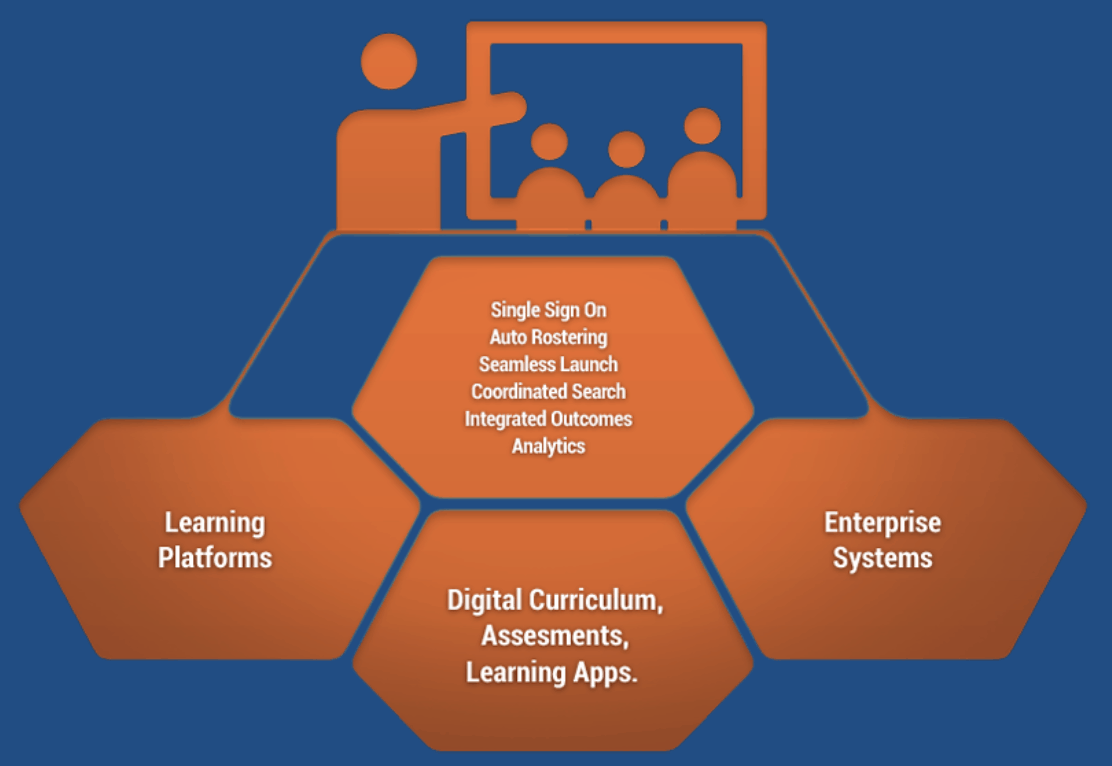How IMS is Leading on Interoperability and Credentialing

Plumbing–you don’t think about it, but can’t imagine life without it. In education, data is now the plumbing and IMS Global Learning Consortium is the leading standards-setting body.
This week, IMS hosted the Global Learning Impact Leadership Institute in Baltimore.
At the conference, IMS announced the Competency and Academic Standards Exchange (CASE) Registry, a free resource that will allow content providers to align with standards from all 50 state standards.
“Georgia is proud to be the first state to fully adopt the CASE standard,” said state Superintendent Richard Woods (see our December podcast with Deputy Superintendent Caitlin McMunn Dooley, where she discusses CASE as a core component of their data architecture).
HigherEd Integrations
The Learning Tools Interoperability (LTI) standard made it easier to access digital learning resources, apps, and tools within any platform. LTI (now v1.3) has been incorporated into more than 70 learning platforms and hundreds of learning apps.
LTI Advantage is a package of extensions built on LTI to add new features, including names and role-provisioning services, deep linking, and assignment and grade services. IMS Executive Director Rob Abel said HigherEd leaders were excited about LTI Advantage.
K-12 Interoperability
LearnPlatform, the edtech management and rapid-cycle evaluation system, announced at the Institute an IMPACT-Ready designation, a way for edtech companies to demonstrate their commitment to driving positive student outcomes. To achieve the designation, providers commit to ensuring student data privacy, signing the Project Unicorn vendor pledge, providing transparency and equity in their accessibility, and using data sharing standards.
Congratulations also to Beatriz Arnillas, Senior Educational Advisor at itslearning, and Lenny Schad, Chief Technology Information Officer, Houston ISD on winning the IMS Leadership Award.
Better Open Badges
In February, a year after taking over the initiative, IMS announced Open Badges 2.0. The updated badge standards ensure learner-control of credentials, demonstrate rigor of achievement, and guarantee that learners are able to display their badges on and share their badges from any IMS certified platform. Products that are certified can be found at IMS Certified Product Directory.
Two big advantages of OBv2, according to Abel, are verifiable evidence and the ability to search evidence not just with keywords. Big employers like Microsoft and EY will begin using OBv2. Abel thinks most school districts will begin to add badges to transcripts in the not-too-distant future, but it will be a hybrid world with courses, grades and badges as evidence.
For more see:
- Data Interoperability: Applying Playground Principles to EdTech
- Not Much New in EdTech in 2017; 3 Things Could Change that in 2018
- Getting Smart on Data Interoperability
Stay in-the-know with all things EdTech and innovations in learning by signing up to receive the weekly Smart Update. This post includes mentions of a Getting Smart partner. For a full list of partners, affiliate organizations and all other disclosures, please see our Partner page.









0 Comments
Leave a Comment
Your email address will not be published. All fields are required.